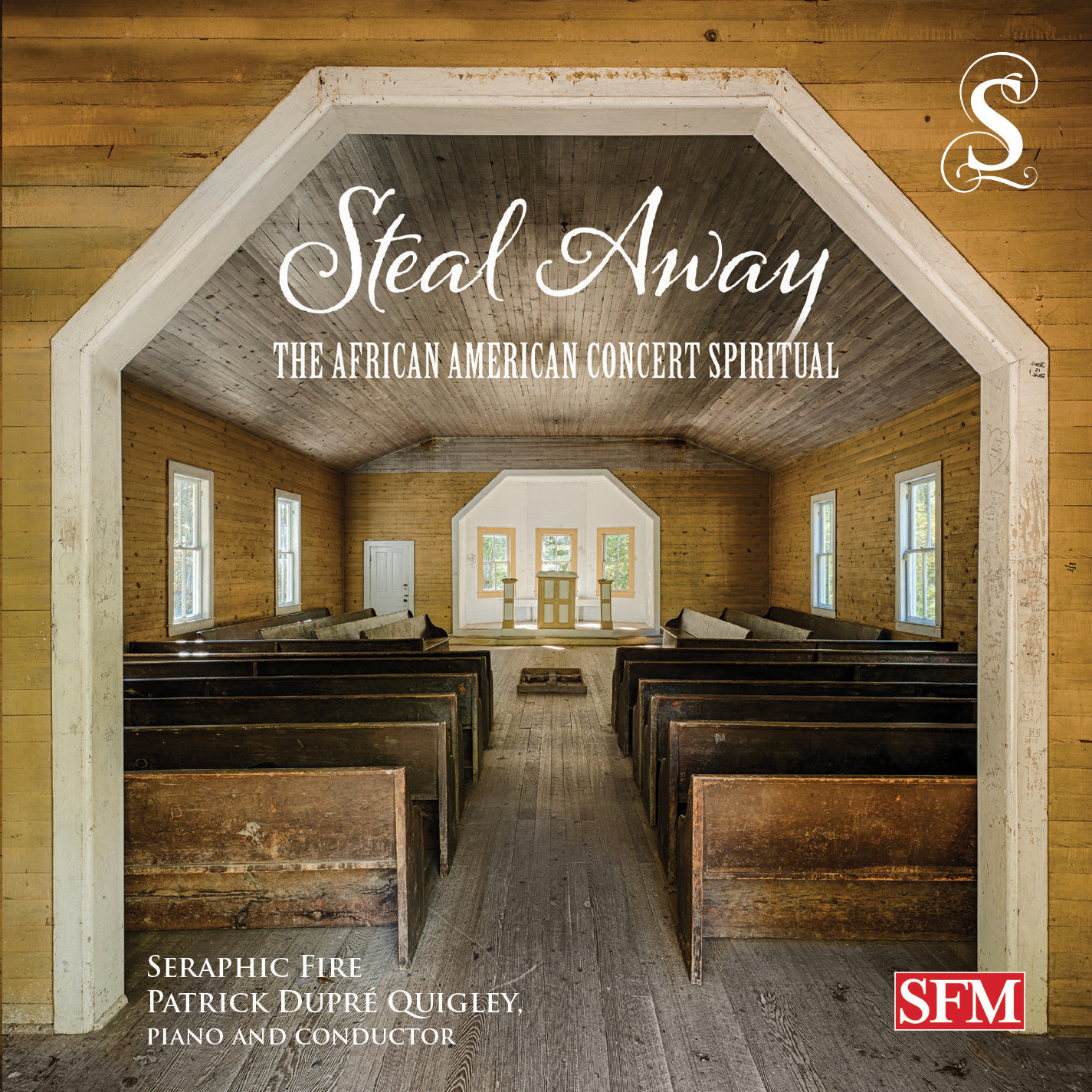
Seraphic Fire explores the African-American concert spiritual in new recording

“Steal Away,” a new recording by Seraphic Fire.
The voice of the African-American spiritual is incomparable. A fascinating, unequivocally American fusion, it is at once searing and soothing. And whether sung in church or in a concert hall, it occupies a select place in the history of music.
In the text that accompanies a newly released album, “Steal Away,” Patrick Dupré Quigley explains the spiritual briefly but with impressive clarity. As the founder and director of Seraphic Fire, the New Orleans native knows the subject matter well–to the point that it was practically necessary for the vocal ensemble (a Knight Arts Challenge winner ) to record one of the many successful concerts it has devoted to spirituals. Making this record proved to be an excellent decision, as it beautifully highlights the Miami-based group’s continued growth and success.
From the Jubilee Singers to Chanticleer, what was once called the “Negro spiritual” has traveled a long road, leading from Mahalia Jackson all the way to Martina Arroyo. Those were the first two singers of spirituals I heard as a child in my native Argentina, awakening an interest in this foreign genre I did not yet know. With her passion and lustrous tone, a classical soprano like Arroyo was positively uplifting when performing “Every Time I Feel the Spirit.” If it didn’t make you feel the spirit, it got close! In Arroyo, I was lucky to find an artist who, by virtue of her talent, could guide a neophyte through an alien, different, alternative, oft-ignored repertoire, making me a fan and ultimately a champion of that music. (Similarly, other classically trained singers introduced me to what are frequently treated as lesser genres, Elisabeth Schwarzkopf luring me to the operetta and Spaniards Teresa Berganza and Victoria de los Ángeles to the zarzuela.) With time, I discovered the pioneering Marian Anderson and many other notable African-American divas who put their personal stamp on the spiritual, enriching a repertoire that is to be treasured: Shirley Verrett, Leontyne Price, Barbara Hendricks, Grace Bumbry, Reri Grist, Kathleen Battle and Jessye Norman (the latter two, stars of a memorable Carnegie Hall concert in the presence of nonagenarian Anderson), as well as Florence Quivar, who, accompanied by the Harlem Boys Choir, recorded a recital for EMI that is required listening for any fan.
This new recording by Seraphic Fire, released Jan. 29, consists of 15 impeccable spirituals that fit perfectly with the genre’s style and possibilities. In them, the group eschews pretensions, adheres strictly to the classical tradition and observes rigorous practices as to execution and even pronunciation. The result is a parade of famous songs that enables individual ensemble members to shine. It boasts a respectful and devotional approach, evident, for example, in Kathryn Mueller’s rendition of “You Must Have That True Religion,” which opened the live recital during which this album was recorded.
Fortunately, there were no excesses. All the chorale members kept to healthy, pre-set limits, rhythms and tempi that preserved the music’s intrinsic values. For example, “Great Day” benefited from a restrained approach and the contribution of soprano Mela Daley. Something similar happened with the inspired version of “Over My Head,” delivered by countertenor Reginald Mobley, who was accompanied on piano by Quigley. In Quigley’s piano arrangement of “Were You There,” the spiritual virtually flowed, resembling one of Franz Schubert’s many “Lieder” for choir. The same was true of the final “Steal Away,” again featuring Mobley.
The group spirit prevailed in “Every Time I Feel the Spirit” and “Little Black Train,” while “This Little Light of Mine” acquired angelic touches in the voice of mezzo Amanda Crider. Well versed in early music’s polyphonic tendencies and the challenges of a capella singing, Seraphic Fire seemed at home with the difficult “My Lord What a Morning,” “Poor Man Lazarus” and “Daniel, Servant of the Lord”–numbers enriched by the superb contributions of tenor Steven Soph and bass James Bass, the chorus master.
It was a good idea to include two live songs that capture the group in action. In the concert hall, as on disc, Seraphic Fire’s crystalline contribution to the classical catalogue is exquisite and refined. Exceptionally well recorded and presented, the record’s voices have no race. They are seraphic voices, united as one.
Recent Content
-
Artsarticle ·
-
Artsarticle ·
-
Artsarticle ·
